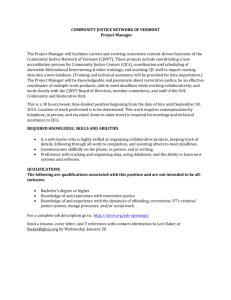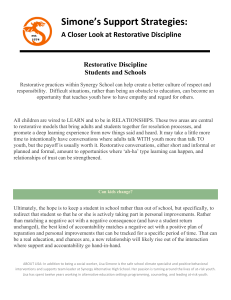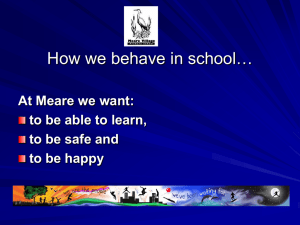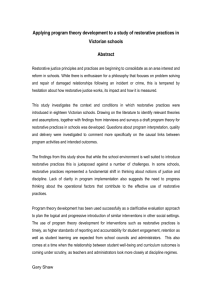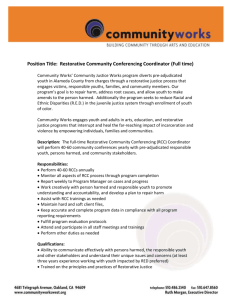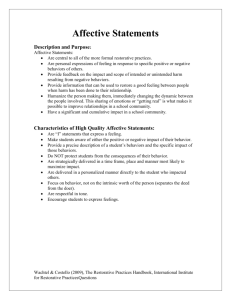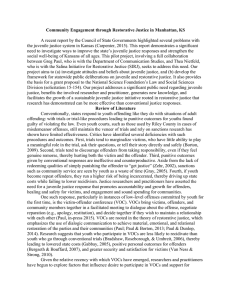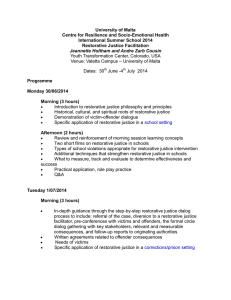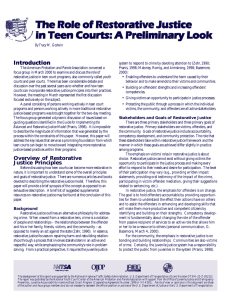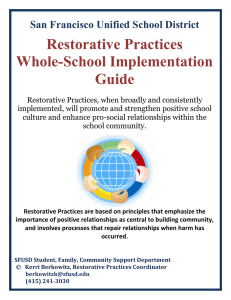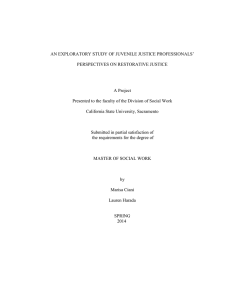Breaking the School to Prison Pipeline: Houston, Texas
advertisement
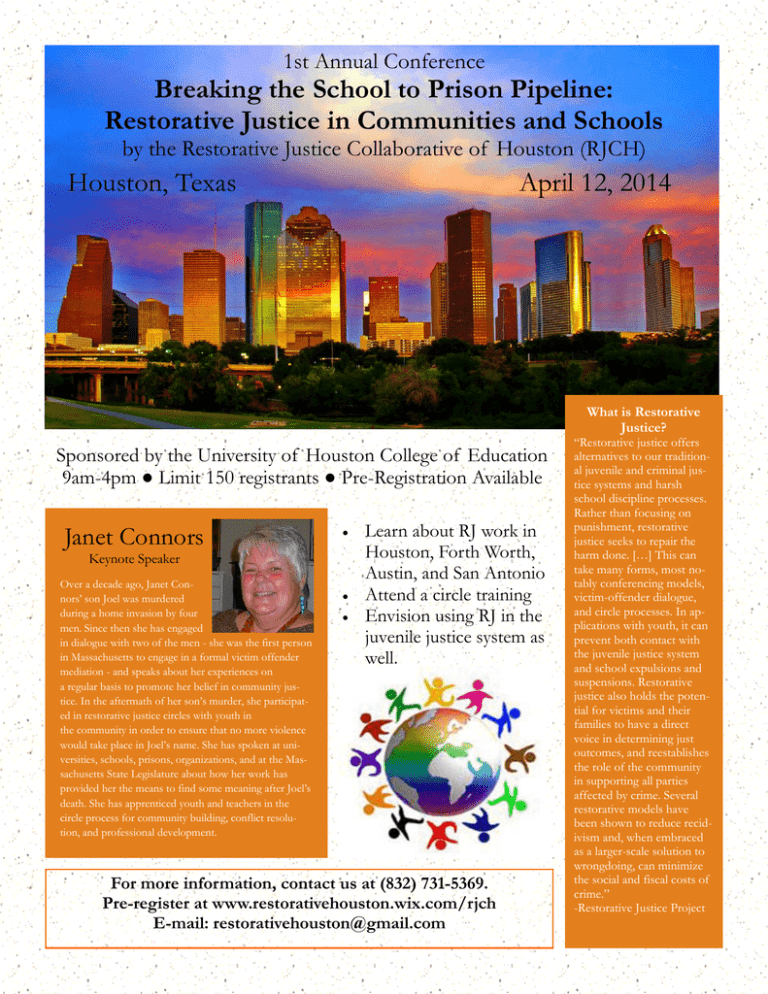
1st Annual Conference Breaking the School to Prison Pipeline: Restorative Justice in Communities and Schools by the Restorative Justice Collaborative of Houston (RJCH) Houston, Texas April 12, 2014 What is Restorative Justice? Sponsored by the University of Houston College of Education 9am-4pm ● Limit 150 registrants ● Pre-Registration Available Janet Connors Keynote Speaker Over a decade ago, Janet Connors’ son Joel was murdered during a home invasion by four men. Since then she has engaged in dialogue with two of the men - she was the first person in Massachusetts to engage in a formal victim offender mediation - and speaks about her experiences on a regular basis to promote her belief in community justice. In the aftermath of her son’s murder, she participated in restorative justice circles with youth in the community in order to ensure that no more violence would take place in Joel’s name. She has spoken at universities, schools, prisons, organizations, and at the Massachusetts State Legislature about how her work has provided her the means to find some meaning after Joel’s death. She has apprenticed youth and teachers in the circle process for community building, conflict resolution, and professional development. Learn about RJ work in Houston, Forth Worth, Austin, and San Antonio Attend a circle training Envision using RJ in the juvenile justice system as well. For more information, contact us at (832) 731-5369. Pre-register at www.restorativehouston.wix.com/rjch E-mail: restorativehouston@gmail.com “Restorative justice offers alternatives to our traditional juvenile and criminal justice systems and harsh school discipline processes. Rather than focusing on punishment, restorative justice seeks to repair the harm done. […] This can take many forms, most notably conferencing models, victim-offender dialogue, and circle processes. In applications with youth, it can prevent both contact with the juvenile justice system and school expulsions and suspensions. Restorative justice also holds the potential for victims and their families to have a direct voice in determining just outcomes, and reestablishes the role of the community in supporting all parties affected by crime. Several restorative models have been shown to reduce recidivism and, when embraced as a larger-scale solution to wrongdoing, can minimize the social and fiscal costs of crime.” -Restorative Justice Project
